News > Blog
Brainstorming Climate Adaptation and Resilience in Diverse Programming
Published 11/14/2023 by Global Communities
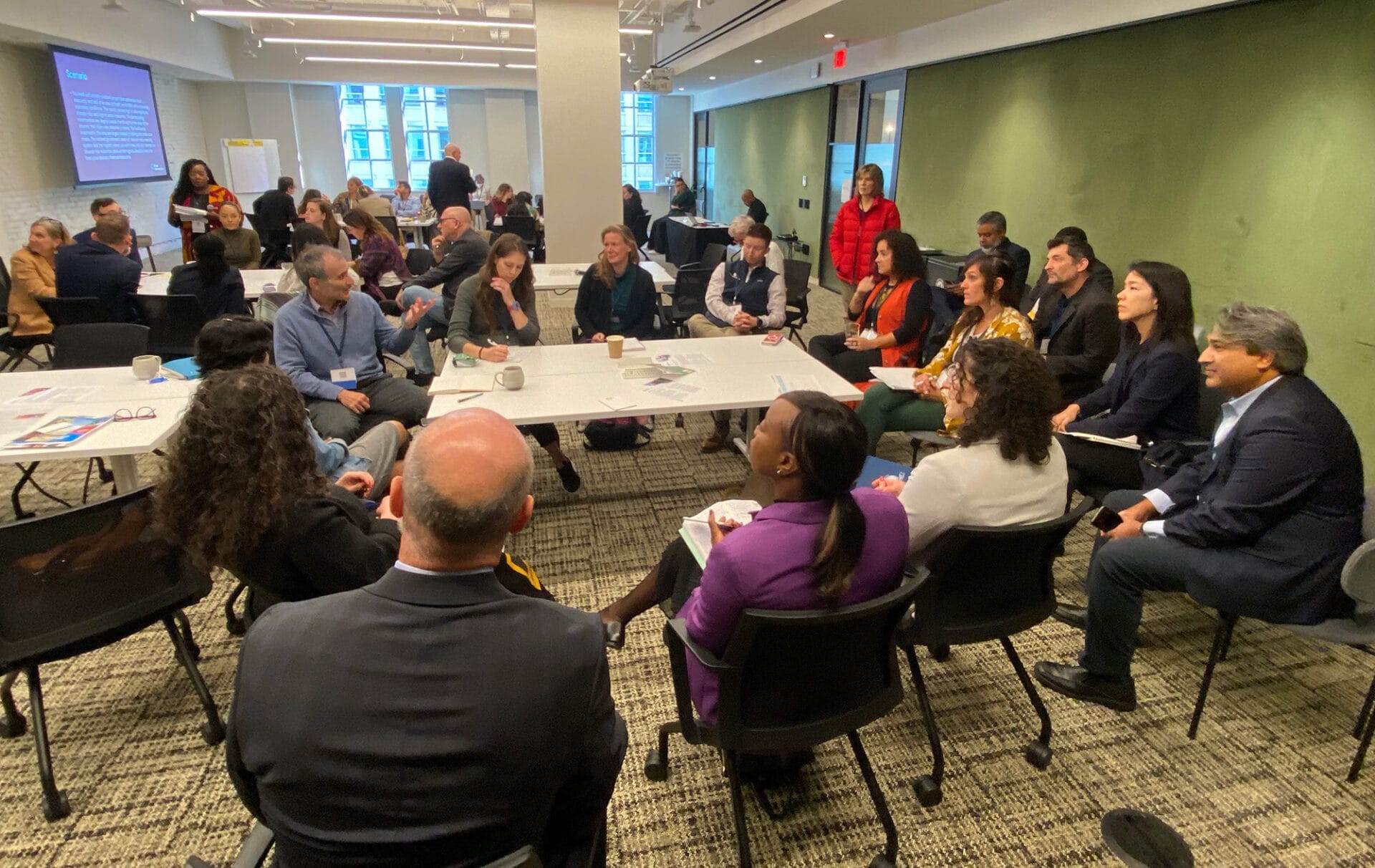
By Paula Rudnicka, Sr. Manager for Public Affairs & Chioma Okafor, Sr. Technical Advisor for Local Capacity Strengthening
Last month InterAction held its annual Forum, which brought together organizations, changemakers and executives from the public, private and nongovernmental sectors to explore the most pressing issues facing the world today. Sarah Charles, who oversees the Bureau for Humanitarian Assistance at the United States Agency for International Development (USAID), opened the Forum, offering insights into the dynamic landscape of global humanitarian efforts amidst rapid changes caused by prolonged conflicts and climate change.
Global Communities was thrilled to participate in the Forum and lead a breakout session, “Brainstorming Climate Adaptation and Resilience in Diverse Programming.” We designed the session to explore how climate change affects communities around the globe; identify promising mitigation and adaptation strategies; and discuss the environmental impacts of development programming.
Sheila Crowley, Executive Vice President & Chief Operating Officer at Global Communities, reflected in her welcoming remarks that climate change is a major threat to development and humanitarian progress. “Increases in the frequency and intensity of extreme weather events have devastating impacts on many communities we serve and alter the environment we operate in,” she said.
Crowley added that Global Communities is committed to mainstreaming climate resilience across our programs. This includes strengthening the capacity of communities to mitigate the impacts of climate change through disaster risk reduction, climate-resilient WASH and climate-smart agricultural practices, such as crop adaptation and sustainable livestock production. She also mentioned Global Communities’ emerging gender-transformative and women-focused approach to food security and climate change.
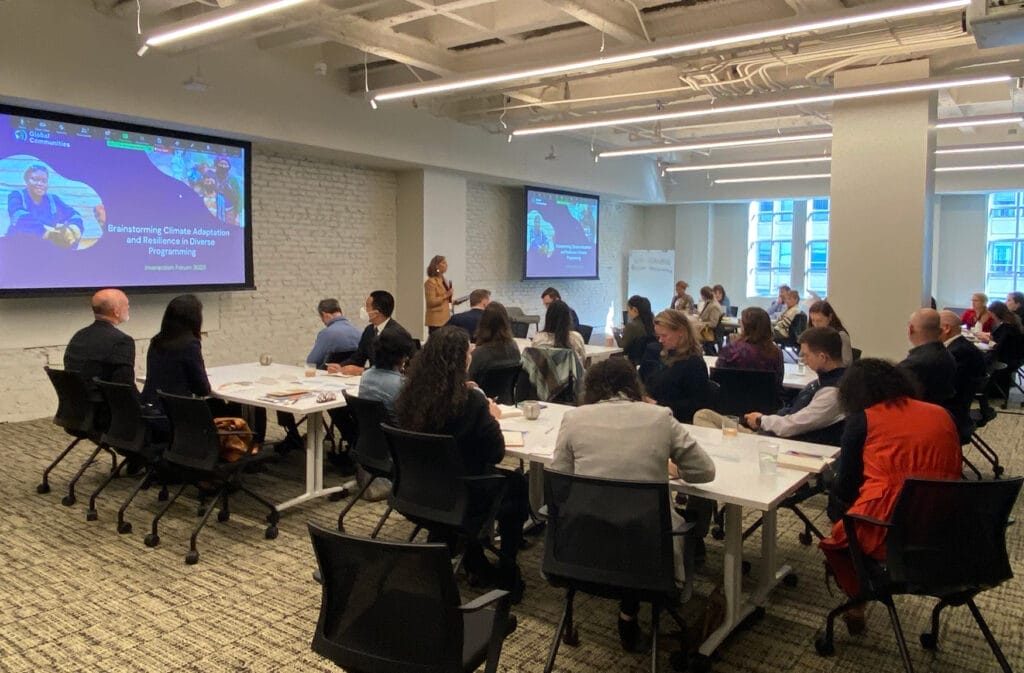
Following the opening statement, Chioma Okafor, Senior Technical Advisor for Local Capacity Strengthening at Global Communities, took the stage to summarize takeaways from a year-long webinar series, Adapting Health Systems to Protect Children from the Impact of Climate Change. Hosted by the Child Health Task Force and moderated by Cara Endyke Doran from Global Communities and Swathi Manchikanti from the United Nations Children’s Fund (UNICEF), the series explored the climate crisis as a children’s crisis. According to the Children’s Climate Risk Index, nearly half of the world’s children – approximately 1 billion – live in one of the 33 countries classified as “extremely high risk” because of exposure to multiple environmental shocks. These shocks have harmful impacts on children’s health, from malnutrition and heat-related disorders to developmental delays, disability and death. The webinars underlined the urgency of strengthening primary health care systems to meet these emerging challenges to children’s well-being.
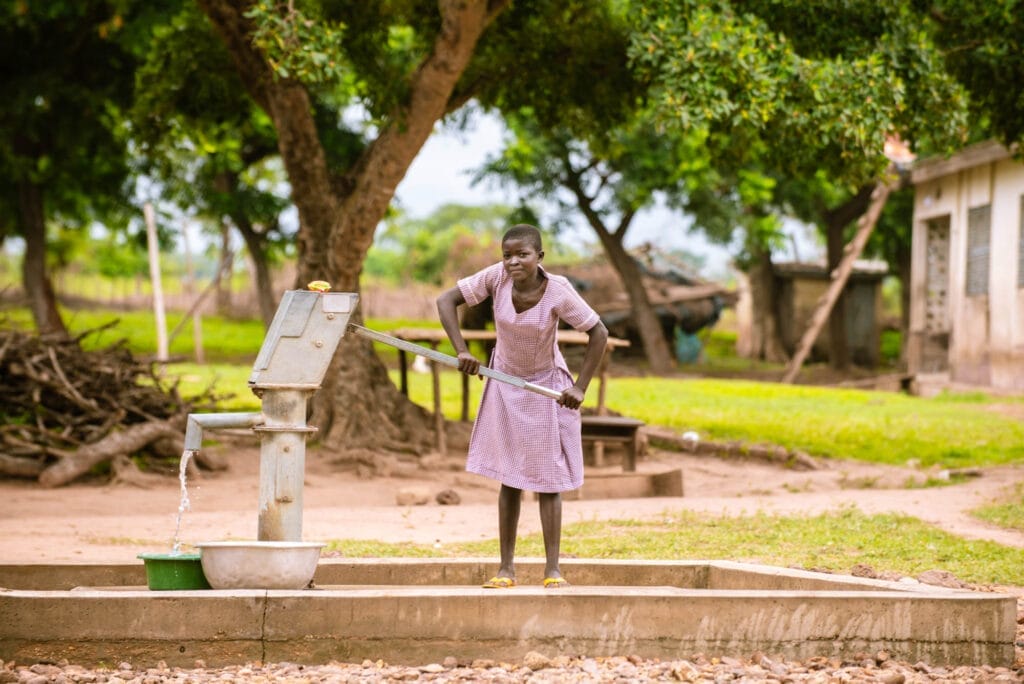
Next, Rado Ravonjiarivelo, Environmental Compliance and Climate Integration Program Manager at Catholic Relief Services (CRS), joined live from Madagascar to talk about the Basics of Climate Risk and Resilience. In his presentation, Ravonjiarivelo explained the Resilience Conceptual Framework and its role in managing risks based on climate hazard, exposure and vulnerability. He also provided a climate profile for Southern Madagascar, which is significantly impacted by drought-induced food insecurity. Ravonjiarivelo then spoke about actions that CRS is taking to mitigate the crisis, such as:
- Large-scale reforestation efforts to reduce hazard;
- Early warning systems to reduce exposure;
- Cash assistance and lending for shock recovery to reduce vulnerability; and
- Increasing social capital through collective action to enhance resilience.
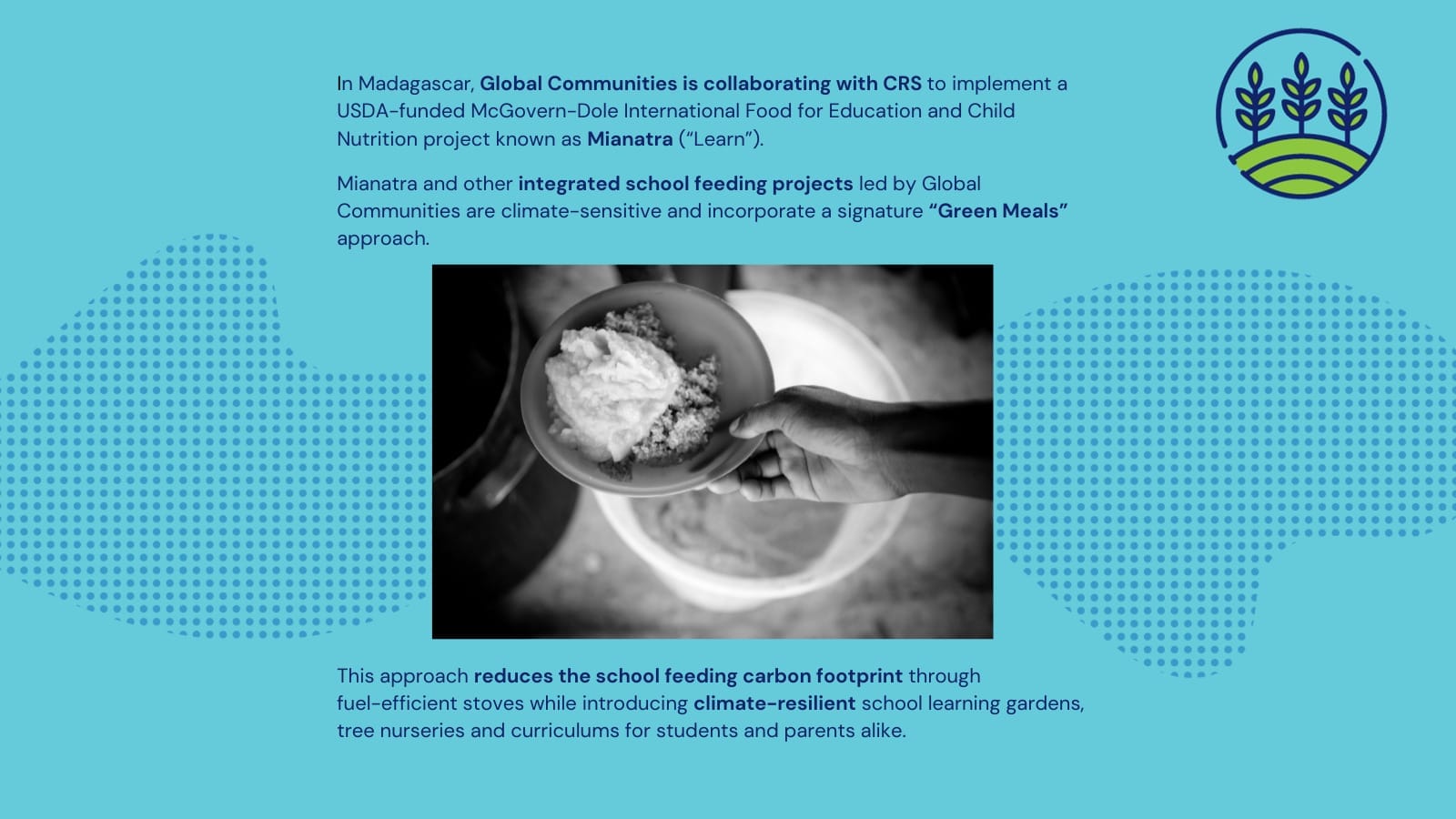
Finally, Forum participants heard from Dominic Osei, Global Communities’ Deputy Chief of Party of the USAID-funded Enhancing WASH (En-WASH) Activity. Osei discussed the impacts of climate change on communities and project activities in Northern Ghana.
“During flood events, communities we are working with are cut off and we are not able to access them until the district assemblies reconstruct the roads and bridges,” he said. “People also lose their livelihoods during floods, and they are not able to raise enough funding to pay for WASH services.”
Osei added that life is difficult during the dry seasons, too, because Northern Ghana becomes too hot for people to function well; in addition, boreholes dry up affecting people’s access to water. All of this creates an urgent need to adapt the program to the changing environment. According to Osei, it is vital to educate communities about climate change so that they can build climate-resilient WASH facilities that will serve them for longer periods of time. En-WASH has worked with affected communities to develop climate change mitigation plans as part of the activity’s sustainability efforts.
From access to water and food to children’s health and development, the climate crisis affects all aspects of people’s lives. It is therefore imperative to design climate-conscious programs, which not only mitigate climate-related risks and enhance community resilience to climate shocks and stresses, but also limit their own environmental impact. In the last segment of the session, we divided the participants into three small groups to examine a hypothetical. The scenario included information about a fictional, multisectoral project in a country facing high vulnerability to climate shocks. We challenged the participants to identify the problem and brainstorm climate-sensitive mitigation strategies. The participants grappled with the following questions, which should be a standard practice in project design efforts:
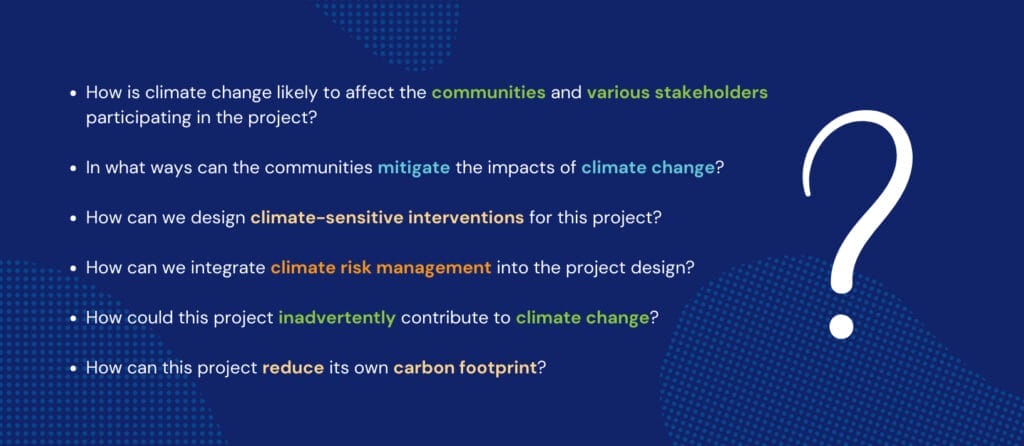
The participants highlighted the devastating impact of extreme weather events on people’s livelihoods and the well-being of vulnerable populations, including women and children who are disproportionally affected by climate change. They recommended a variety of solutions, such as:
- Implementing community needs assessments and risk mapping;
- Creating climate crisis management plans;
- Developing early warning systems for extreme weather events;
- Investing in cyclone-resistant housing and shelters, and climate-resilient WASH facilities;
- Promoting drought-resistant agricultural solutions;
- Establishing cooling centers to reduce heat stress; and
- Addressing gender impacts of climate change, including increased risk of gender-based violence.
The participants also proposed limiting certain activities, such as printing and international travel, to reduce the project’s carbon footprint. Finally, the participants articulated the need to contextualize the solutions to be holistic and equitable; integrate interventions at the nexus of climate, health, food security and gender; and ground project design in the local knowledge and needs.
To do our work effectively, we need to be agile, flexible and adaptable. … We need to plan around climate change and through it.
Jason Brooks, Technical Director of Global Water Security, Sanitation and Hygiene
As our Technical Director of Global Water Security, Sanitation and Hygiene (WSSH), Jason Brooks, recently pointed out, new challenges generated by the climate crisis require new approaches, new ways of operating, and new ways of thinking, not just about how the climate is changing, but how our programs need to change and how we – as development and humanitarian practitioners – need to change.
“It is becoming clearer and clearer that every single program needs to adapt to this harsh reality and take a climate lens,” Brooks said. “As predictability goes down and vulnerability increases, we need to conduct our activities with one eye on the implementation plan and one eye on the sky, whether it is hoping for rain that may not come or preparing for a cyclone that may arrive out of season. To do our work effectively, we need to be agile, flexible and adaptable, more now than ever before. We need to plan around climate change and through it.”






